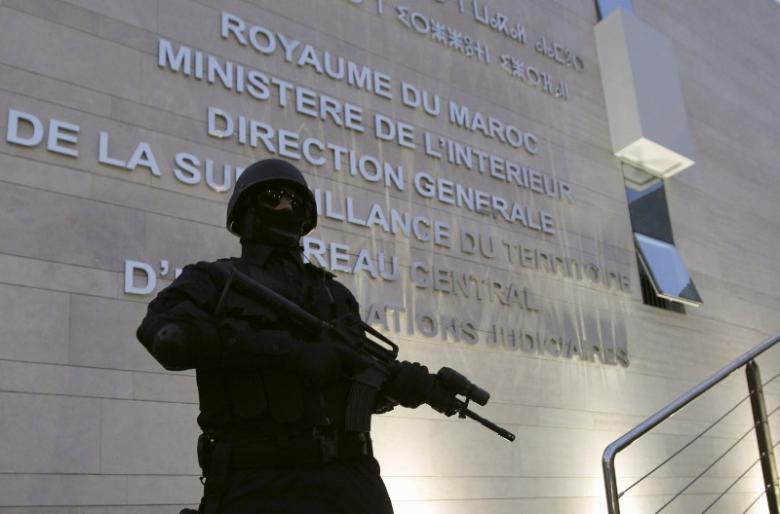Rabat – Director of the Central Bureau for Judicial Investigation (BCIJ) Abdelhak Khiame said that security coordination with Algeria is insufficient given the challenges facing the region.
“Moroccan intelligence saved Western, Arab and African countries from tragic events through the information provided,” Khiame told Asharq Al-Awsat.
Khiame, who describes his bureau as “the FBI of Morocco”, declared that his country has intelligence agencies of high professionalism that can rival international bodies.
“Morocco has a pioneering experience in fighting terrorism and extremism,” he added.
Khiame said that the BCIJ is a judicial arm of the General Directorate for Territorial Surveillance and it was established after the professionalism of the directorate came to surface. He also highlighted its role in several fields related to terrorism and crime.
Answering a question on how Morocco acquires accurate information related to terrorist networks in other countries, he replied that that it is constantly updating its intelligence information regarding individuals who are active in terrorist groups.
He added that there is regular coordination with France, because Morocco “rises above political disputes as maintaining security and safety of individuals is a priority.”
Asked about rehabilitating the religious field even though a considerable number of Moroccans have joined terrorist movements, he replied by denying that the number is considerable.
“Morocco is one of the few countries that provides transparent statistics,” he stressed.
Asked to clarify his statements that 180 Moroccan women and their children joined ISIS, Khiame said that they are joining these groups not out of Jihad, but out of faithfulness to their husbands.
“We found out that 59 out of 180 returned home after they discovered the truth or after their husbands were killed in the ongoing battles,” he stated.
“Morocco managed to maintain stability in a region full of conflicts and several terrorist cells were discovered in preliminary operations.”
“Security and stability should be priorities because without security we cannot have tourism and investment. Through our preliminary operations we break down cells before they move to the phase of implementation. This means that we are aware of our security interests and the Moroccan environment is clear of any phenomenon that harms tourism.”
Asked to describe “the level of security readiness in Morocco”, he wondered about the meaning of levels, saying that “there is always security readiness to keep the country safe.”
